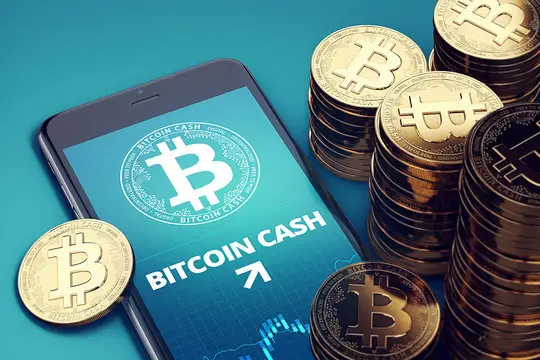Bitcoin Cash (BCH) is a well-known cryptocurrency that emerged as a result of the Bitcoin (BTC) hard fork in 2017. It was created to address some of the fundamental issues that Bitcoin was facing, particularly in terms of scalability and transaction costs. In this comprehensive guide, we will delve into the origins of Bitcoin Cash, its underlying technology, and its potential impact on the cryptocurrency ecosystem.
The Origins of Bitcoin Cash
Bitcoin Cash was born out of a heated debate within the Bitcoin community about how to address the scaling issues that were becoming increasingly apparent as the network grew. As more people started using Bitcoin for transactions, the limited block size of 1 MB led to congestion and higher transaction fees. Two main camps emerged: one that proposed an increase in the block size and another that advocated for the implementation of the Segregated Witness (SegWit) protocol to optimize transaction data storage.
Unable to reach a consensus, a group of developers, miners, and investors decided to create a new version of Bitcoin that increased the block size to 8 MB. This hard fork took place on August 1, 2017, and resulted in the creation of Bitcoin Cash.
The Vision of Bitcoin Cash
The primary goal of Bitcoin Cash is to facilitate faster, cheaper, and more reliable transactions than Bitcoin. By increasing the block size, the Bitcoin Cash network can accommodate a larger number of transactions per block, thereby reducing congestion and lowering transaction fees. The Bitcoin Cash community believes that these improvements will enable the cryptocurrency to serve as a viable medium of exchange for everyday transactions and compete with traditional payment systems, such as credit cards and PayPal.
Bitcoin Cash’s Core Technology
Bitcoin Cash shares many of the same technical foundations as Bitcoin, but with several key differences aimed at improving scalability and transaction efficiency. The main components of the Bitcoin Cash technology stack include:
Increased Block Size: The most significant difference between Bitcoin and Bitcoin Cash is the block size. While Bitcoin maintains a 1 MB block size, Bitcoin Cash initially increased the block size to 8 MB and later raised it to 32 MB. This larger block size allows for more transactions to be included in each block, which helps alleviate network congestion and reduce transaction fees.
Adjustable Difficulty Algorithm: Bitcoin Cash introduced a new difficulty adjustment algorithm called the Difficulty Adjustment Algorithm (DAA) to ensure consistent block times and a stable mining environment. The DAA adjusts the mining difficulty dynamically based on the number of miners participating in the network, preventing large fluctuations in block times and ensuring a steady flow of transactions.
Rejection of SegWit: Unlike Bitcoin, which implemented the Segregated Witness (SegWit) protocol as a means to optimize transaction data storage, Bitcoin Cash opted not to adopt this solution. The Bitcoin Cash community believes that increasing the block size is a more effective and straightforward approach to addressing scalability issues.
The Role of Bitcoin Cash (BCH) Tokens
BCH tokens serve as the native currency of the Bitcoin Cash network and have several essential functions:
Medium of Exchange: Bitcoin Cash was designed to facilitate fast, cheap, and reliable transactions, making it an attractive option for users looking to send and receive funds over the internet. BCH tokens can be used to pay for goods and services, both online and in physical stores that accept the cryptocurrency.
Store of Value: Like Bitcoin, Bitcoin Cash is often considered a digital form of gold, with a limited supply of 21 million coins. This scarcity, combined with its decentralized nature, makes BCH a potential store of value, particularly for those who are concerned about the long-term stability of traditional fiat currencies.
Mining Rewards: Miners on the Bitcoin Cash network are rewarded with newly minted BCH tokens for contributing their computational power to secure the network and validate transactions. These mining rewards serve as an incentive for miners to maintain the network’s security and stability.
Network Fees: Users pay transaction fees in BCH when sending funds across the network. These fees compensate miners for processing transactions and maintaining the blockchain. The Bitcoin Cash network aims to keep these fees low to encourage widespread adoption and usage of the cryptocurrency.
Benefits of Bitcoin Cash
Bitcoin Cash offers several advantages over Bitcoin and traditional payment systems:
Faster Transactions: With its increased block size, the Bitcoin Cash network can process a larger number of transactions per block, resulting in faster confirmation times compared to Bitcoin.
Lower Transaction Fees: Due to its ability to accommodate more transactions in each block, Bitcoin Cash typically has lower transaction fees than Bitcoin. This makes it more attractive for everyday transactions, such as buying a cup of coffee or sending money to friends and family.
Scalability: The larger block size of Bitcoin Cash allows the network to scale more effectively as the number of users and transactions grows. This scalability ensures that the network can continue to function efficiently even as adoption increases.
Decentralization: Like Bitcoin, Bitcoin Cash is decentralized, meaning that no central authority controls the network. This provides users with a level of financial autonomy and censorship resistance not found in traditional payment systems.
Potential Use Cases of Bitcoin Cash
Bitcoin Cash is designed to support a wide range of applications and use cases, including but not limited to:
Peer-to-Peer Payments: With its low transaction fees and fast confirmation times, Bitcoin Cash is well-suited for peer-to-peer money transfers, allowing users to send and receive funds quickly and inexpensively.
Merchant Adoption: Bitcoin Cash’s focus on transaction efficiency makes it an attractive option for merchants looking to accept cryptocurrency payments. The low fees and fast confirmations can help businesses reduce their payment processing costs and streamline transactions.
Micropayments: The low transaction fees of Bitcoin Cash enable users to make small payments for digital goods and services, such as online articles, music, or in-app purchases. This opens up new revenue streams for content creators and app developers.
Remittances: Bitcoin Cash can facilitate cross-border money transfers, enabling users to send funds to friends and family overseas quickly and cost-effectively. This can provide a valuable alternative to traditional remittance services, which often charge high fees and take several days to process transactions.
Conclusion
Bitcoin Cash emerged as a solution to the scalability issues faced by the original Bitcoin network. With its increased block size and focus on transaction efficiency, Bitcoin Cash aims to become a viable medium of exchange for everyday transactions. While it remains to be seen whether Bitcoin Cash can achieve widespread adoption and overtake Bitcoin as the dominant cryptocurrency, it has certainly established itself as a prominent player in the crypto ecosystem. As the digital currency landscape continues to evolve, Bitcoin Cash will undoubtedly play a crucial role in shaping the future of decentralized finance and digital payments.






